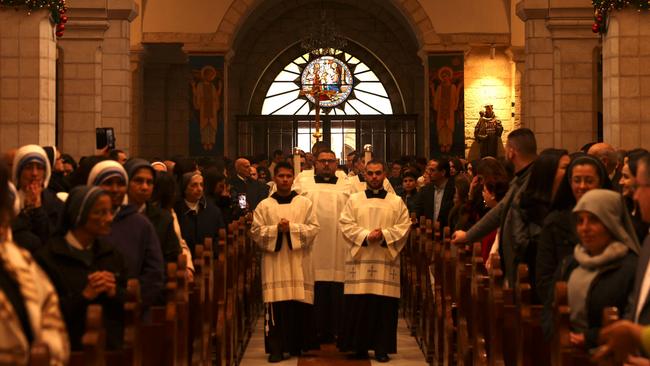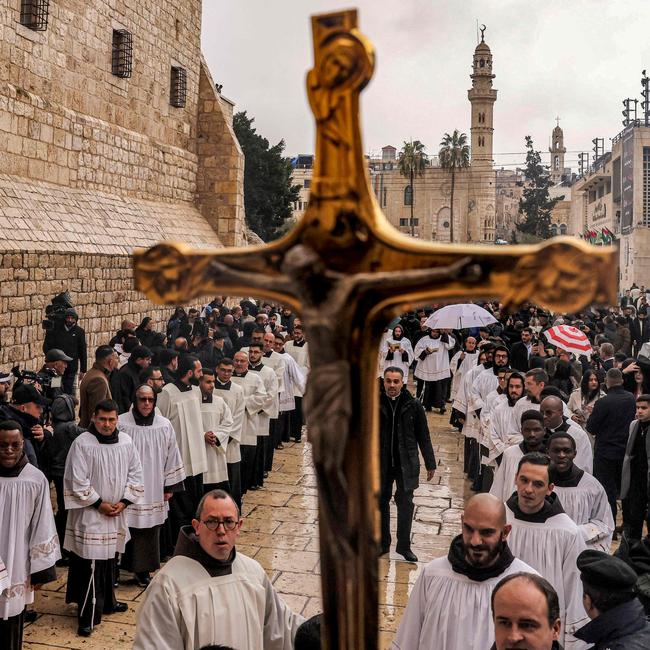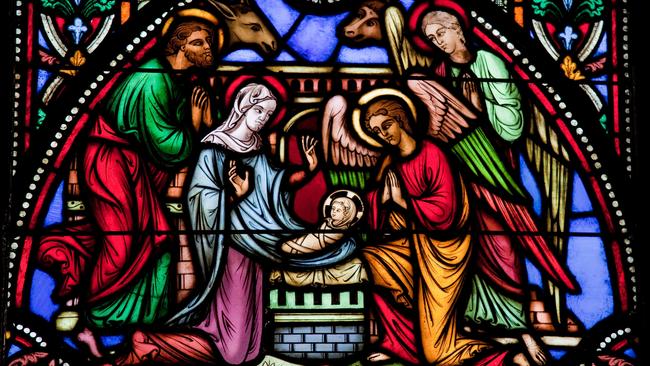Spirit of hope and renewal the season’s true message

Christmas night, December 25, coincides with the beginning of the Jewish Festival of Lights – Hanukkah, from the Hebrew word for dedication. It was a celebration that Jesus Christ knew as a child in Nazareth growing up with his mother, Mary, and foster father, St Joseph. He also observed it as an adult, St John recounts in his gospel, when “it was winter” and Jesus was in Jerusalem for the feast of the dedication of the Second Temple after the Jewish people’s successful uprising against the Hellenist Syrian empire in the Maccabean rebellion, around 167-160BC.
Hanukkah, when small candles flicker bravely in the homes of the Jewish faithful, also celebrates the survival of Judaism, sometimes against seemingly insurmountable odds. This year will be sad for many, especially the congregants of the Adass Israel Synagogue at Ripponlea, in Melbourne’s southeast, who will desperately need Hanukkah’s spirit of hope and resilience.
During Advent, Christians’ pre-Christmas season, the mass readings from Old Testament prophets such as Baruch proclaimed a message of hope for Jewish people as relevant today as when he wrote it in the sixth century BC during a long exile in Babylon (modern-day Iraq). The community had lost everything that gave them a sense of identity and looked to God to restore them to their homeland so Jerusalem could once again become a city of joy, peace and integrity, as the prophet recounted.

That spirit of hope and renewal is the true message of Christmas, as Archbishop Hosam Naoum of the Episcopal (Anglican) Church of Jerusalem says in his Christmas message, when the season “challenges us to break down barriers, heal divisions and share grace with others. In the midst of conflict, Christmas reminds us that true peace begins within us and is embodied in our actions and responses.”
That spirit is alive in Bethlehem, Christ’s birthplace, where an enterprise of traditional handmade glass decorations – “handblown by Muslims, painted by Christians, shipped by Israel” – is thriving, with proceeds used towards training a new generation of artisans. The colourful, delicate baubles are popular among worshippers at Brompton Oratory, one of London’s most popular and traditional churches.
“What are we to make of promises of peace when nations devote themselves to annihilating each other?” Sydney’s Catholic Archbishop Anthony Fisher asked in his recent sermon at the Carols service at Maroubra in the city’s southeast. “Did the heavenly host not know what the supposedly Holy Lands were like and always would be? Could they not foresee the (US) civil war, the world wars, the Ukraine today and more? Did they get their wires crossed and relay the wrong message that first Christmas? If ‘peace on earth’ was aspiration rather than description, where is that elusive peace to be found?”
Jesus entered “fully into the human mess, into the Middle East, the heart of so much beauty and heartache, spirituality and contest. Into a family struggling with relationships, finances, violence and homelessness. Into the lives of refugees, widows and orphans, the sick and sorrowful.” He entered with grace and hope, whispering from his crib: “Things can be different,” Dr Fisher said.

Hope is born in the most unexpected places, Uniting Church president Reverend Charissa Suli says in her message: “Hope isn’t found in what we possess or what we lack. On that first Christmas night, hope entered the world in the form of a baby. Jesus, the son of God, was born not in a palace but in a humble stable – God entering our world in humility and vulnerability.
“Through this child, God chose to dwell among us, bringing love and light into the darkness.”
At times, she says, it can feel as if hope is far out of reach “but the Christmas story speaks to these very struggles. Just like hope was born into poverty on that first Christmas, so hope continues to be born into our broken world.”
From the glories of the superbly restored Notre Dame Cathedral beside the Seine in Paris to Christmas trees in family homes, it should shine brighter on Wednesday than at most times.
In his message, Anglican Primate and Archbishop of Adelaide Geoffrey Smith asks Australians to consider following the generous example of first century bishop St Nicholas of Myra that “is really at the heart of any celebration of Christmas”.
“Lots of words are used trying to explain the spirit of Christmas or the real meaning of Christmas; for me, the kind of generosity shown by St Nicholas, mirroring the generosity of God in coming among us as one of us in the person Jesus is at the heart of any celebration of Christmas,” he says.
Donations to countless transformative causes make a difference. So does making an extra place at the table to brighten the day for someone who needs company and warmth.
The Australian wishes our readers Merry Christmas, Hanukkah Sameach and happy holidays.


To join the conversation, please log in. Don't have an account? Register
Join the conversation, you are commenting as Logout